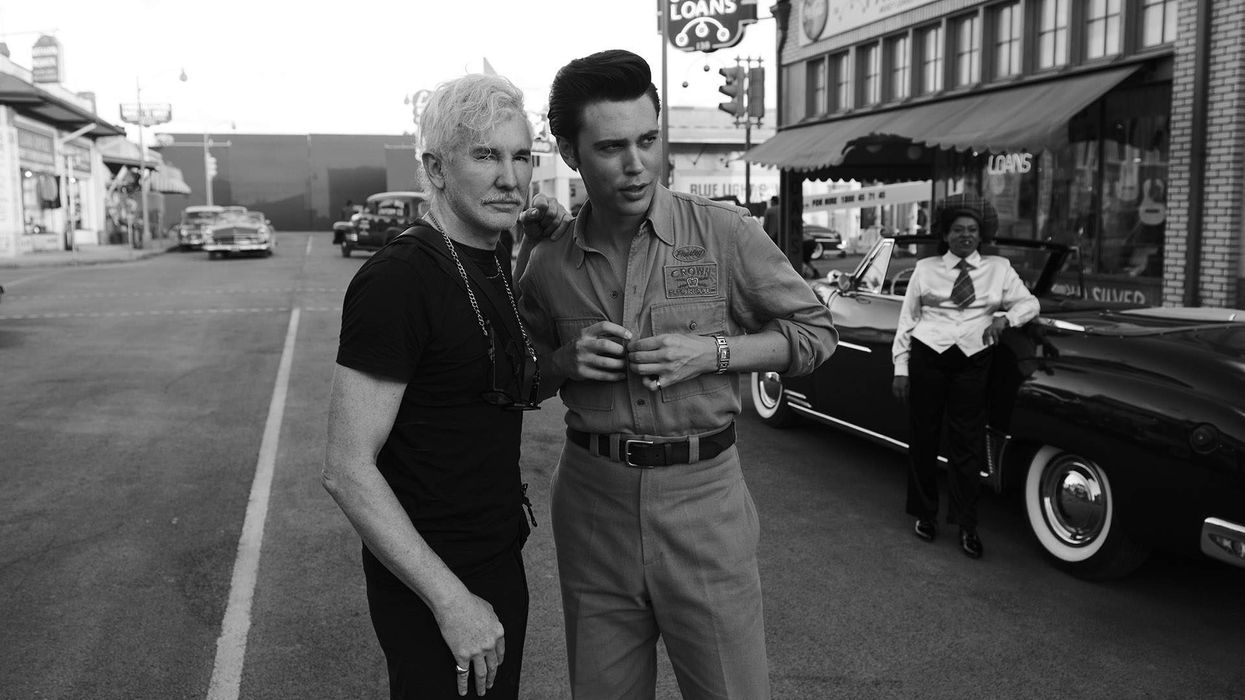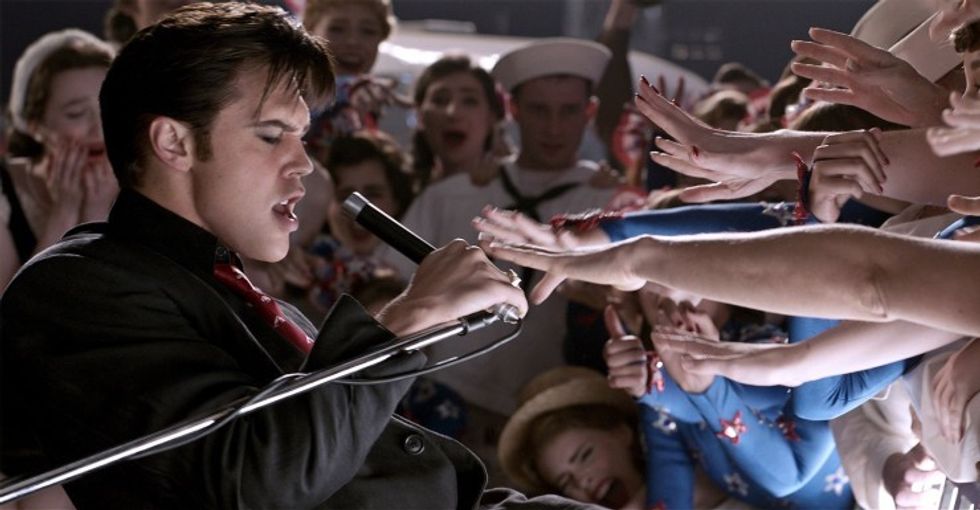Embrace Your Creative Chaos with These 5 Quotes from Baz Luhrmann
This auteur is a master of sensory overload, and he can teach you a thing or two about embracing your distinct style.

Baz Luhrmann is a filmmaker that has a style so distinctive and flamboyant, it can be dizzying. He highlights the absurdity of a world in which doomed characters live in a state of hyper-realism, far removed from anything we’ve ever seen before.
Call it nostalgia or a simple love for absurdity, but I’ve always adored Luhrmann’s bold cinematic language that unapologetically romanticizes an exaggerated world. From Romeo + Juliet to 2013’s The Great Gatsbyto his latest film Elvis, Luhrmann constantly brings to life his vision while entertaining his audience.
Luhrmann has a loud and fearless approach to his creative process that is unlike most filmmakers, so let’s learn how to emulate that same energy.
5 Filmmaking Tips from Baz Luhrmann
"All the films I make are about 60% of what I imagined."
Bringing your entire creative vision to life isn’t always possible. This is true for any filmmaker with any budget. As creatives, it is hard to look at the final project and feel completely satisfied with what is there. It can’t say everything you’ve wanted to say, and that can be–well, frustrating.
What Luhrmann says you should focus on is what works for the story. In an interview with 60 Minutes Australia, Luhrmann says, “I know that it's working. What I mean is that it's delivering, it's working as a piece of story and I know that.”
Don’t feel defeated if everything you want to say isn’t translating perfectly. As long as what is happening on set is working for the story, then your vision is still coming to life.
What is also great about filmmaking is the fact that it’s a collaborative process. If you don’t know how to bring a crucial element of the story to life, don’t be afraid to ask for some creative insight from your crew. They can offer a new perspective to help you find a solution to your problem.
"In the end, what is the most important thing is that there are people who do get it and if a lot of people get it then I am happy that they get something from it."
When asked by Arts Beat LA about how he handles criticism, Luhrmann says he embraces the "real negative stuff."
"I don’t like it when they say something misinformed. I am staggered that people who are clearly educated are so naive sometimes. What, they think I don’t notice the fact that Diane Venora’s performance [in Romeo + Juliet] is incredibly over the top in the beginning and at the end of the film, she’s more naturalistic?"
Luhrmann is extremely deliberate about each moment and every performance in his films. Everything in the film is in service of the story, so when people criticize an element of his work, Luhrmann listens and wonders if what he was trying to do translated to the audience.
Filmmaking is about learning and growing your skills, and criticism exists to help you sharpen your talent, not beat you down and completely defeat you. Embrace the informed negative criticism because it can only help you on the next project.

"[The audience] are aware at all times that they are watching a movie, and they should be active in their experience and not passive."
While many filmmakers are focused on bringing the beauty of realism to the front and center of their films, Luhrmann is aware that the audience knows that what they are watching is not real.
“So we thought, let’s look back to a cinematic language where the audience participated in the form,” Luhrmann says in an interview with The Guardian. “[The audience should] not [be] put into a sort of sleep state and made to believe through a set of constructs that they are watching a real-life story through a keyhole. They are aware at all times that they are watching a movie. That was the first step in this theatricalized cinematic form that we now call the Red Curtain.”
What can you do to engage with your audience?
"We would be fearless about the lowness of the comedy."
I would be remiss to not mention that Luhrmann is deeply influenced by William Shakespeare’s ability to write dramas for “the simple person and the complicated person.”
In his interview with the Guardian at BFI, Luhrmann says, “[William Shakespeare] had to deal with a city of 400,000 people and a theater that held 4,000 and everyone from the street sweeper upwards. Not unlike your local cineplex, and he used everything possible to arrest and stop that audience—really bawdy comedy and then, wham! Something really beautiful and poetic.”
Learning from Shakespeare, Luhrmann found a way to be fearless about the "lowness" of the comedy (or other elements) in his films like visuals or music. While some viewers might not enjoy this, Luhrmann doesn’t seem to care, as he takes risks that he believes enhance the story he is trying to tell.

"And while most of it has been difficulty and pain, there have been some, for want of a better expression, silver linings."
The COVID-19 pandemic was a strange and serious time for everyone, but Luhrmann revealed to Interview Magazine that the pandemic "was remarkable because no one really knew where we were all heading."
This lack of certainty gave Luhrmann space to understand something fundamental about his filmmaking while preparing to film Elvis.
"I think that happened to a lot of people, not just in their creative process, but in their life. They were thinking, am I living my best life? How am I using my precious time? There’s been a recalibration of what is valuable, what is worth doing, what is being alive and what is not," Lurhmann says.
It is always beneficial to understand why you are making the choices you are making. Does the choice reflect you and your state of mind, or is it the easy way out?
Like I said earlier, Luhrmann is deliberate about every choice he makes for his films because it is how he understands the story he is telling, but that doesn't mean there are no other ways to tell the same story. Be open to the other perspectives that exist, and see if there is something that furthers your understanding of the story you are telling.
Be bold and unapologetic about your vision. You are the only one who can make them a reality. Sounds a bit corny, but it's the truth. Luhrmann knows this and relishes the fact that no one else can replicate the unique style that works for his story.
Leave your favorite Baz Luhrmann film in the comments!

 "'Back Home"via Mercedes Arutro
"'Back Home"via Mercedes Arutro 'Back Home'via Mercedes Arutro
'Back Home'via Mercedes Arutro 









